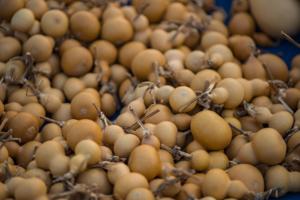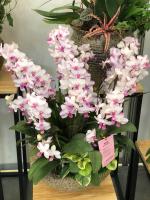How Hard Is It to Hide a Pot Plant?
Growing a pot plant may be legal in certain circumstances, such as for medicinal purposes, but for many people, it is still a criminal offense. Those who choose to cultivate pot plants in secret must face the challenge of keeping their plants hidden from the public eye. With the increasing sophistication of law enforcement technology and methods, it is becoming harder and harder to evade detection. In this article, we will discuss just how difficult it is to hide a pot plant.
Growing Conditions Have to Be Just Right
The first hurdle to growing a pot plant undetected is creating the best possible growing conditions. Pot plants need ideal lighting, temperature, and moisture levels to survive and thrive, and any plants that look unhealthy or undernourished may draw unwanted attention. To maintain the proper growing conditions, growers must be able to visit their plants frequently, which puts them at risk of discovery.
Need for Adequate Space
Pot plants can grow quite large, so growers must have access to enough space to ensure their plants have ample room to grow. This poses a huge challenge for those who live in small apartments or share communal living spaces with others. These types of living arrangements make it challenging to keep a plant hidden, especially if someone enters the space unexpectedly.
Smell Can Give You Away
Anyone who has grown a pot plant knows that the smell can be overpowering. It can be hard to mask, even with the use of air fresheners and deodorizers. Growers must take care to vent their space correctly or risk drawing attention to their operation. Moreover, the stronger the smell of the pot plant, the more likely it is that someone will report it to the authorities.
Risk of Detection by Law Enforcement
Law enforcement is using increasingly sophisticated methods to detect pot plants, including the use of drones, heat-seeking cameras, and other advanced technologies. Pot plants have a unique thermal signature that can be easily recognized by surveillance equipment, and once detected, law enforcement will likely move quickly to confiscate the plants and prosecute the growers. The risk of detection is higher in areas where pot plants are illegal.
Conclusion
The bottom line is that hiding a pot plant is no easy feat. From maintaining the right growing conditions to finding enough space and working to conceal the smell, there are a lot of challenges that growers must navigate. Moreover, law enforcement is getting better and better at detecting pot plants, making it more difficult to keep such operations under wraps. As such, those who choose to grow pot plants illegally must be prepared for significant risks, including arrest and imprisonment.

 how many times do yo...
how many times do yo... how many planted tre...
how many planted tre... how many pine trees ...
how many pine trees ... how many pecan trees...
how many pecan trees... how many plants comp...
how many plants comp... how many plants can ...
how many plants can ... how many plants and ...
how many plants and ... how many pepper plan...
how many pepper plan...
































